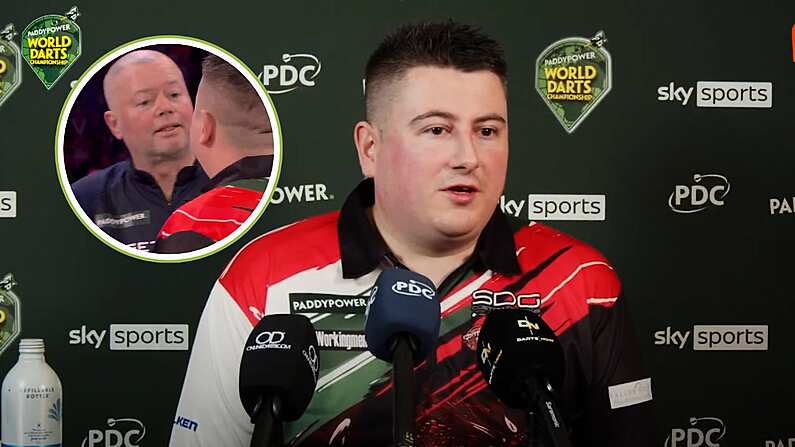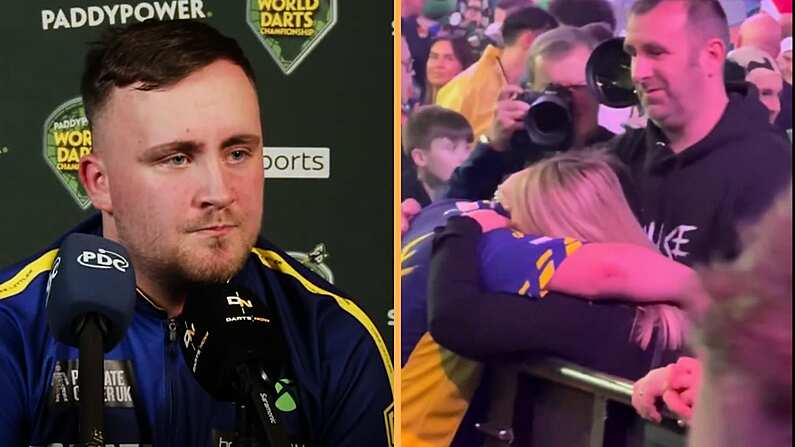The Thick Of It once made a gag that Bob Dylan was like a shark: if it stops moving it will die.
Watching Fernando Torres' career has been quite a lot like watching Bob Dylan. The Torres that broke through at Atletico and joined Liverpool was as sharp, incorrigible and prolific as the young Dylan that turned the folk music scene upside down in the first half of the 1960s. As Dylan's career has progressed, he has embarked on a ceaseless world tour, and watching him, you are never entirely sure what you are going to get: you know you are in the presence of a great, but songs are strange, mangled versions of the original. It could take two or three minutes of growled tones before you realise exactly which song he is actually singing.
The Torres of the last five years is much the same: he still runs as if he could traipse through puddles without making a splash, but the pace at which he does has been lost, and - most surprisingly - his first touch and, at times, his finishing ability have deserted him.
We have suffered but it was worth it. Let’s enjoy it and keep believing #DontStopBelieving #ForzaAtleti pic.twitter.com/hAX3wmJUmi
— Fernando Torres (@Torres) May 3, 2016
Yet Torres has kept on moving, and has landed one hell of an encore at Atletico Madrid. Atleti reaching the Champions League final with the current iteration of Torres is a testament to one of football's strangest careers.
Has a footballer as talented as Torres ever had a career broken so neatly into two acts? The first act had Torres as arguably the best Number 9 in Europe, yet it brought no success other than the Euro 2008 title with Spain and a second division title with Atletico Madrid. The second began in 2010, as a knee injury curtailed his influence at Liverpool, and that injury was the harbinger of the vanishing of confidence, yet he ended up winning the World Cup, another European Championship along with the Champions League, the Europa League and the FA Cup. He picked these medals up despite toiling at Chelsea and (briefly) AC Milan, where watching him shamble around felt like an existential riff on the metaphysical idea of confidence, a concept sagely described by John Giles as 'not knowing when it is there, but knowing when it is not there'.
Act One
Torres was a phenomenon. He burst on the scene at Atleti blazing a trail of forlorn defenders, and when the club were promoted to LA Liga in 2002, he scored 83 goals in five top-flight seasons. A fine record, considering that he was given the added burden of the captaincy at the ludicrously tender age of 19. A considerable task, especially considering one his teammates was a certain Diego Simeone. Torres was what his friend Steven Gerrard would become at Liverpool: a star hauling teammates who were either inconsistent or incompetent to respectable heights. In these seasons, Atleti twice finished 7th and 11th, along with one 10th place finish. The club were dysfunctional, with president Jesus Gil having been previously suspended for the misuse of club funds.
Despite the underachievement, Torres remained loyal to Atleti: most notably in turning down a move to Chelsea after the 2006 World Cup. He eventually left for Liverpool in 2007, to fulfill ambitions of winning the trophies his talent deserved, believing Atleti were unable to deliver them. This was, to be fair, an opinion for which he held ample evidence for, and Liverpool had just been beaten in the Champions League final.
Torres immersed himself in Liverpool's culture, spending the two days he was hidden in an apartment on the docks watching a multitude of DVDs to learn more about Liverpool's history. He was wedded to Atleti and wished to be similarly attached to Liverpool: in his final season with Atleti, he wore a captain's armband with 'You'll Never Walk Alone' written on the inside; a gift from friends that endeared him quickly to the crowd at Anfield.
Another endearing feature were his goals: an astonishing 81 goals in 142 games. It was a time when Torres became arguably the finest Number 9 in world football, yet, despite his ambitions, he won zilch. Other than personal honours - he was named in the FifPro World XI for his first season - Liverpool did not win a single trophy in his time with the club. Liverpool's promise fizzled out among fissures: the rift that opened between owners George Gillet and Tom Hicks ultimately led to Liverpool selling off their best players, first Xabi Alonso, then Javier Mascherano. Torres ultimately left for Chelsea in 2011, admitting that Steven Gerrard had encouraged him to leave, with Torres saying that "he talked with me a lot and even when it was said I was leaving he said: ‘think about yourself and do what’s best for you because you’ve seen how people are leaving and it’s time. You have nothing to prove".
The Turning Point
While Torres' confidence seemed to have vanished as soon as he arrived at Stamford Bridge, the truth is that things changed on April 8th, 2010. Torres scored twice in a 4-1 Anfield romp against Benfica in the Europa League, but damaged his knee in a challenge with Luisao. Torres missed the remainder of the season with a torn meniscus, an injury that was horribly exacerbated in the World Cup final, when he collapsed in the final minutes of extra-time. Torres looked a shadow of his former self the next season under the admittedly stifling reign of Roy Hodgson, before joining Chelsea on the final day of the transfer window in 2011. Liverpool realised that they had run Torres into the ground, and rushed the deal through to the point that Chelsea agreed the deal without subjecting Torres to a medical.
Act Two
At Chelsea, Torres' pre-injury form didn't fall off a cliff as much as plunge from a mountain, hitting each jutting rock on the way down. Yet as Torres form evaporated, his medals accrued, and ultimately yielded the strain on his trophy cabinet that his muscles had been forced to bear at Liverpool. Despite the success, Torres' performances were largely terrible, and his Chelsea career is less remembered for Nou Camp goals that caused Gary Neville to orgasm than it is for humiliating moments, like this at Old Trafford:
At Chelsea, it seemed that regardless of the situation, Torres would contrive to mess it up. In the end, Torres scored 45 goals in 172 games at Chelsea, and then just one in ten appearances on loan at Milan. In the end, Torres' goalscoring record either side of that knee injury before joining Atleti reads:
Pre-knee injury: 163 goals in 360 games
Post-knee injury: 55 goals in 298 games
Act Three?
Improbably, Torres was offered a return to where it all began by Diego Simeone in 2014. At times he has struggled back at the Calderon - there was an excruciating five-month gap between Torres' 99th and 100th goals for Atleti - yet he has been trusted by Simeone to lead the line in Atleti's biggest games this season. The increasingly creative moments of despair of Chelsea have occurred at Atleti - sent off against Barca, missed penalty at Bayern - yet Torres played the entire ninety minutes last night, and set up Antoine Griezmann's critical away goal.
The scales have been tipped: whereas once Atleti held Torres back, now his boyhood club propel him to success. It is a neat turnaround, and proof that sometimes, the best things come to those who wait.
Keep on moving.












